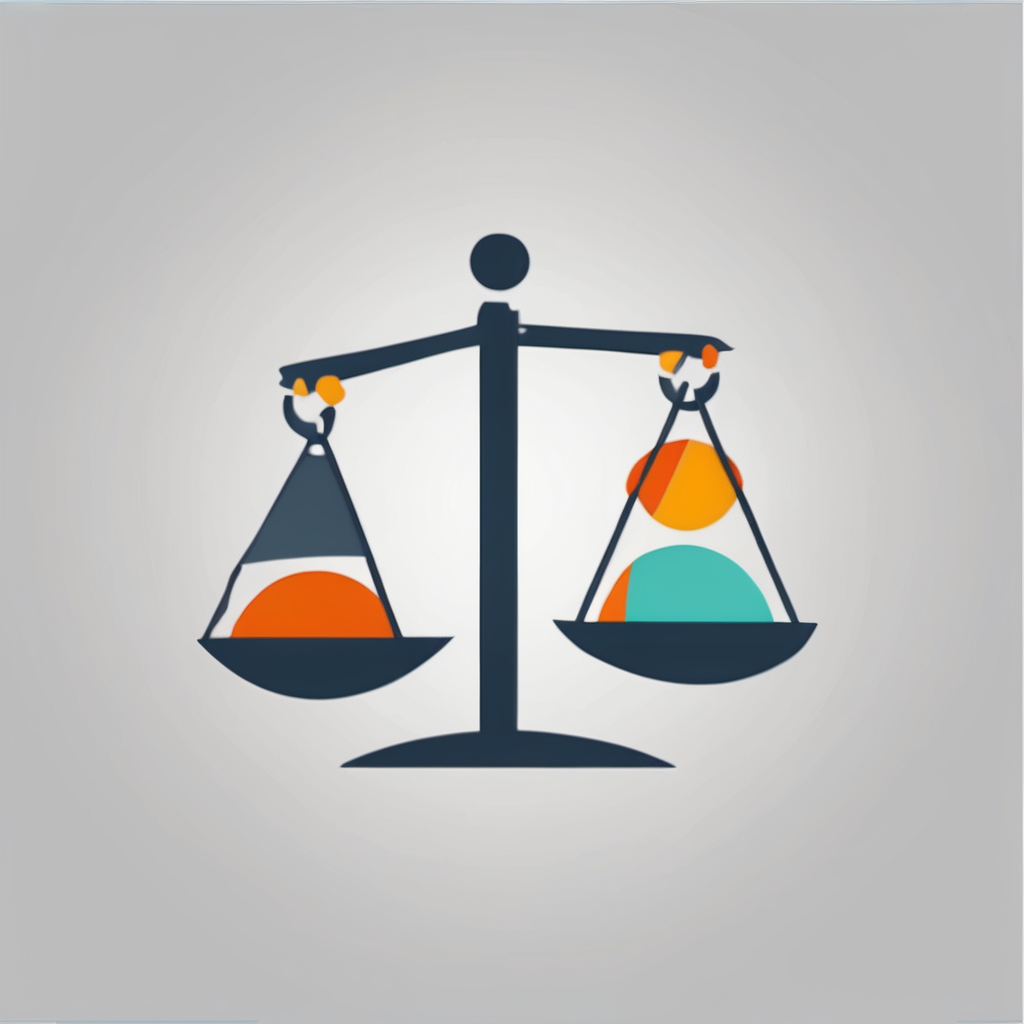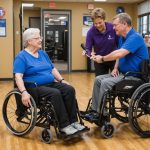Overview of ADHD Management Without Medication
Attention Deficit Hyperactivity Disorder (ADHD) is a prevalent neurodevelopmental disorder that affects numerous children globally. Non-Medication ADHD Management is crucial for those who either cannot take medication due to medical reasons or prefer alternative methods. This approach often involves implementing strategies tailored to an individual’s unique needs and circumstances, encompassing various techniques from behavioral interventions to lifestyle adjustments.
The importance of non-medication strategies in pediatric care cannot be overstated. They offer a holistic perspective on managing ADHD, focusing on long-term well-being rather than immediate symptom reprieve. Engaging methods such as behavioral therapy, educational support, and family involvement play a pivotal role in enhancing a child’s attention span and self-regulation skills.
In parallel : Exploring the Cutting-Edge Innovations in Robotic Surgery for Gynecological Procedures: A Guide for UK Surgeons
UK health authorities advocate for non-pharmacological strategies as part of their comprehensive approach to ADHD management. Guidelines suggest incorporating educational, psychological, and social methods to support the child’s development. By focusing on personalized interventions and environmental modifications, these strategies aim to foster an inclusive environment that supports children with ADHD, enabling them to thrive without relying solely on medication.
Therapeutic Interventions
Therapeutic Strategies for ADHD, specifically non-pharmacological interventions, offer a comprehensive approach to managing ADHD symptoms without medication. This includes a range of interventions aimed at improving attention, behavior, and emotional regulation.
Have you seen this : Revolutionary Approaches: Advanced Minimally Invasive Spine Surgery Techniques Employed by UK Orthopedic Surgeons
Cognitive Behavioral Therapy (CBT)
Cognitive Behavioral Therapy is a prominent therapeutic strategy for ADHD. It helps in modifying negative thought patterns and behaviors that may exacerbate ADHD symptoms. Evidence suggests that CBT effectively enhances problem-solving skills, boosting a child’s ability to handle everyday tasks.
Parent Training Programs
Parental involvement is crucial in behavioral training. Parent training programs empower caregivers to implement therapeutic strategies for ADHD at home. These programs focus on managing distractions, using positive reinforcement, and creating an environment conducive to a child’s needs, ultimately fostering improved behavioral outcomes.
Mindfulness and Relaxation Techniques
Mindfulness and relaxation techniques have gained recognition as beneficial non-pharmacological interventions. Practices such as meditation and deep breathing help children develop better self-awareness and emotional control. Additionally, research indicates that these techniques contribute to improved attention spans and reduced impulsivity, thus playing a vital role in the broader spectrum of ADHD management strategies.
Behavioral Strategies
Behavioral Management Techniques are essential tools in addressing ADHD, particularly in children. These strategies focus on modifying behavior through structured approaches, often central to managing symptoms without medication. They encompass various methods designed to shape positive behavior and decrease undesirable actions.
One effective approach involves the use of positive reinforcement. This technique rewards desirable behavior, encouraging its repetition. For example, a child might receive praise or a small reward for completing homework on time. By consistently applying such methods, caregivers can promote a more structured and focused environment.
Moreover, establishing a consistent routine is crucial. Predictability helps children with ADHD understand expectations and responsibilities, reducing anxiety and impulsivity. Daily schedules and clear rules provide a framework within which children can learn and thrive.
Additionally, peer support and social skills training play a significant role. Engaging in group activities where social interactions are guided can enhance communication skills and foster friendships. These interactions teach children how to navigate relationships and respond to social cues appropriately.
Incorporating these behavioral management techniques into daily life can significantly impact the well-being of children with ADHD, providing a robust foundation for their developmental journey without relying solely on medication.
Lifestyle Modifications
Adopting effective lifestyle changes for ADHD can significantly enhance symptom management. Key modifications include focusing on diet and exercise, which impact both behaviour and overall well-being.
Nutritional Interventions
Dietary adjustments are influential in managing ADHD symptoms. A balanced intake focusing on essential nutrients — such as omega-3 fatty acids and proteins — has proven beneficial. Research highlights the negative role of excessive sugar and artificial additives, suggesting a diet rich in natural foods can improve concentration and behavioural outcomes.
Physical Activity Recommendations
Regular exercise is critical for boosting mood and focus in children with ADHD. Active play and structured activities can reduce hyperactivity and promote better impulse control. Exercise increases dopamine and norepinephrine levels, offering a natural way to enhance attention and cognitive function.
Sleep Hygiene Importance
Adequate sleep is vital yet often troublesome for children with ADHD. Implementing strict bedtime routines can dramatically improve daily functioning. Strategies to enhance sleep hygiene include limiting screen exposure before bed and creating a calming pre-sleep environment. Proper rest aids in the regulation of mood and cognitive clarity, supporting overall ADHD management. By integrating these lifestyle changes, caregivers can provide a nurturing environment conducive to a child’s developmental needs.
Case Studies and Evidence-Based Practices
Real-world examples of non-medication ADHD management can offer invaluable insights into the effectiveness of alternative strategies. Through various ADHD case studies, researchers have documented significant improvements in children’s well-being when utilizing non-pharmacological interventions. These examples provide robust support for evidence-based strategies that highlight personalized approaches.
One compelling case involves a 10-year-old boy with ADHD adopting a combination of cognitive behavioral therapy and parent training programs. Over several months, both the child’s behavior and academic performance improved markedly, as indicated by teachers and parents. This example illustrates the benefit of pediatric ADHD strategies that consider individual needs, ultimately leading to enhanced outcomes.
Comparative studies have shown that while medication can offer rapid symptom control, non-medication strategies often yield longer-lasting benefits. For instance, children engaging in lifestyle changes, such as regular exercise and nutritional adjustments, frequently exhibit sustained improvements in focus and behavior over time. This presents a compelling argument for holistic management approaches that prioritize comprehensive well-being.
Long-term implications demonstrate that lifestyle adjustments not only support daily functioning but also contribute to resilience and self-efficacy. Parents and caregivers witness firsthand the transformative power of these strategies, reinforcing the growing belief in their efficacy over traditional medication reliance.
Expert Opinions and Guidelines
Understanding ADHD Management Guidelines is pivotal for optimizing non-medication strategies. Insights from pediatricians underscore the significance of tailored interventions for each child. Many experts in pediatric care emphasize that non-medication approaches often offer sustainable benefits by addressing the root causes rather than just managing symptoms. Pediatricians advocate for an integrative approach, balancing behavioral, lifestyle, and therapeutic interventions to improve daily functioning and well-being.
Current UK Guidelines on ADHD Management
Recent UK ADHD Management Guidelines recognize the potential of non-pharmacological strategies. They recommend a multifaceted approach incorporating educational support and psychological interventions. This aligns with evidence showing the long-term effectiveness of such strategies in managing ADHD symptoms. The guidelines emphasize the role of environment modification, highlighting personalized plans to cater to individual needs.
Future Directions in ADHD Care
Future research and development in ADHD treatment may introduce innovative non-medication options. Areas such as digital therapeutics and biofeedback show promise. These advancements can provide more refined tools for managing ADHD, ensuring inclusive and adaptable care. As understanding evolves, continued exploration of diverse interventions will be crucial to enhancing ADHD management for children worldwide.











